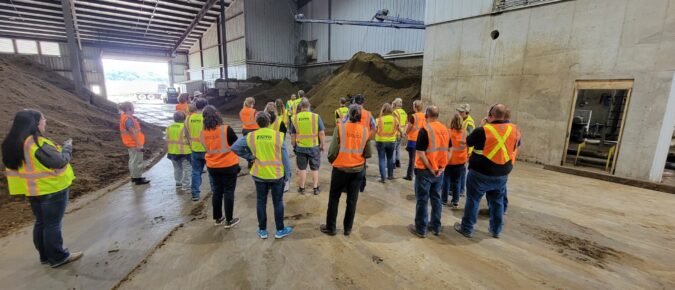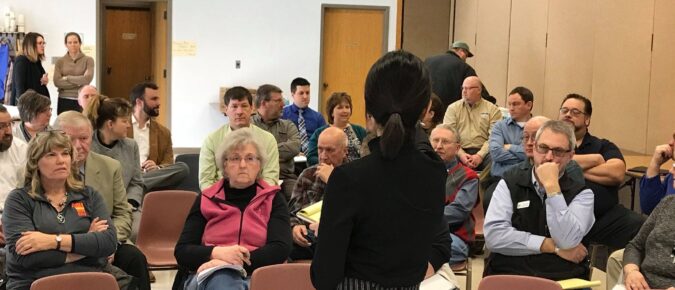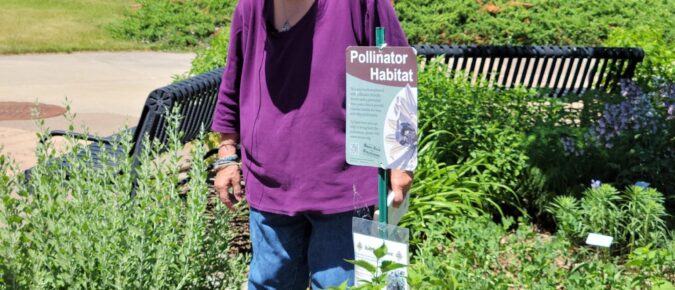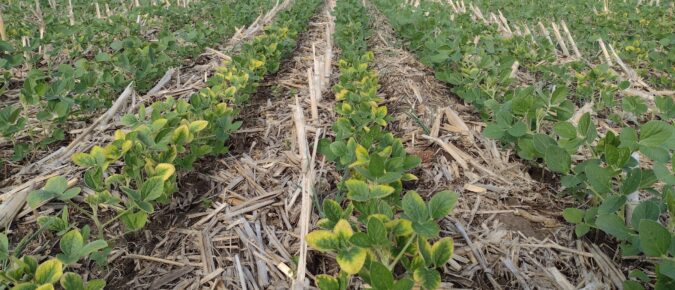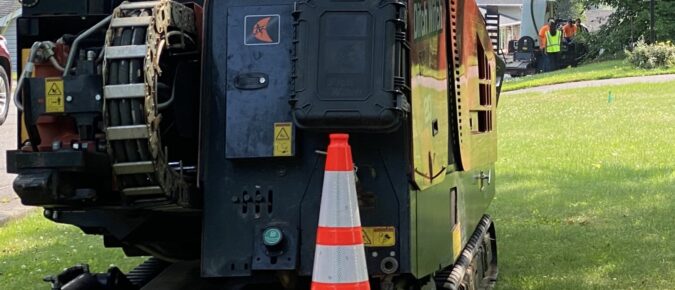Water is a shared resource and is depended on by Wisconsinites for a variety of daily needs including drinking, power generation, growing food, and more. However, agriculture is the dominant land use in Wisconsin, and current farming practices have a significant impact on soil and nutrients loss to surface and groundwater. The majority of water […]
Every other April, local elections are held for local government officials in every town, village, and city in Wisconsin. On average, over 20% of elected officials are new every election cycle. This creates a near continuous group of elected officials beginning their initial term as a local elected official. In this environment, elected officials need […]
Pollinators play a critical role in the world’s ecosystems, facilitating the reproduction of flowering plants and ensuring the production of fruits and vegetables. In North America, insect pollinators such as bees, butterflies, moths, birds, beetles, and wasps are essential contributors to this process. These pollinators are essential for the proper functioning of the natural systems […]
Record high farm income in 2022 drove Wisconsin farm businesses’ interest in new revenue streams, markets and technology. However, in 2023 producers encountered increased interest expense, increasing debt and reduction in working capital due to lower than expected prices, increase in overall production costs, and a decline in USDA assistance. As a result, producers must […]
Biosecurity affects the economic sustainability and viability of livestock producers as disease outbreaks can be exceedingly expensive for producers. Disease outbreaks can cause catastrophic livestock losses including the depopulation of whole herds or loss of newborn animals. For example, a recent US disease outbreak, the 2013 porcine epidemic diarrhea virus (PEDv), spread across 13 states […]
While early 2023 Wisconsin weather was characterized by typical average temperatures and precipitation, wide variability and erratic weather created cool, wet early spring field conditions. In May, much of the state experienced a rapid shift to hot, dry weather. The speed with which the drought came on led to the designation of “flash drought” for […]
Community Food Systems integrate food production, processing, distribution, consumption, and disposal to enhance the environmental, economic, social, and nutritional health of a particular place. As such, community food systems offer an alternative vision to the dominant food system by shortening the length and increasing the transparency of food supply chains while emphasizing links between food, […]
Wisconsin is committed to ensuring access to broadband service for all its residents. Recognizing the necessity of high-speed internet in today’s digital society, Wisconsin aims to address gaps in internet access, adoption, and affordability by outlining strategies to achieve universal service by 2030, with goals to enhance broadband deployment and adoption and to improve the […]

